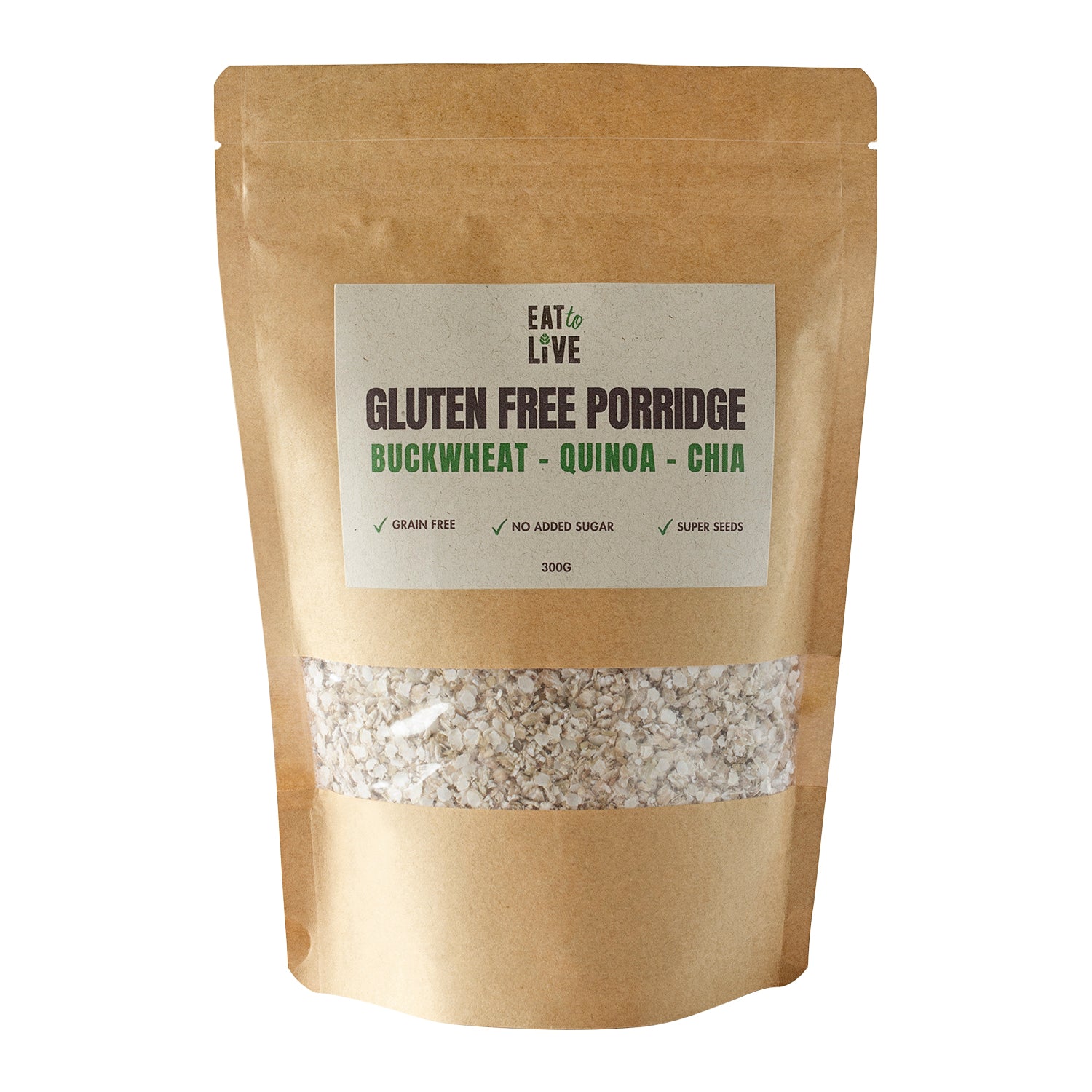
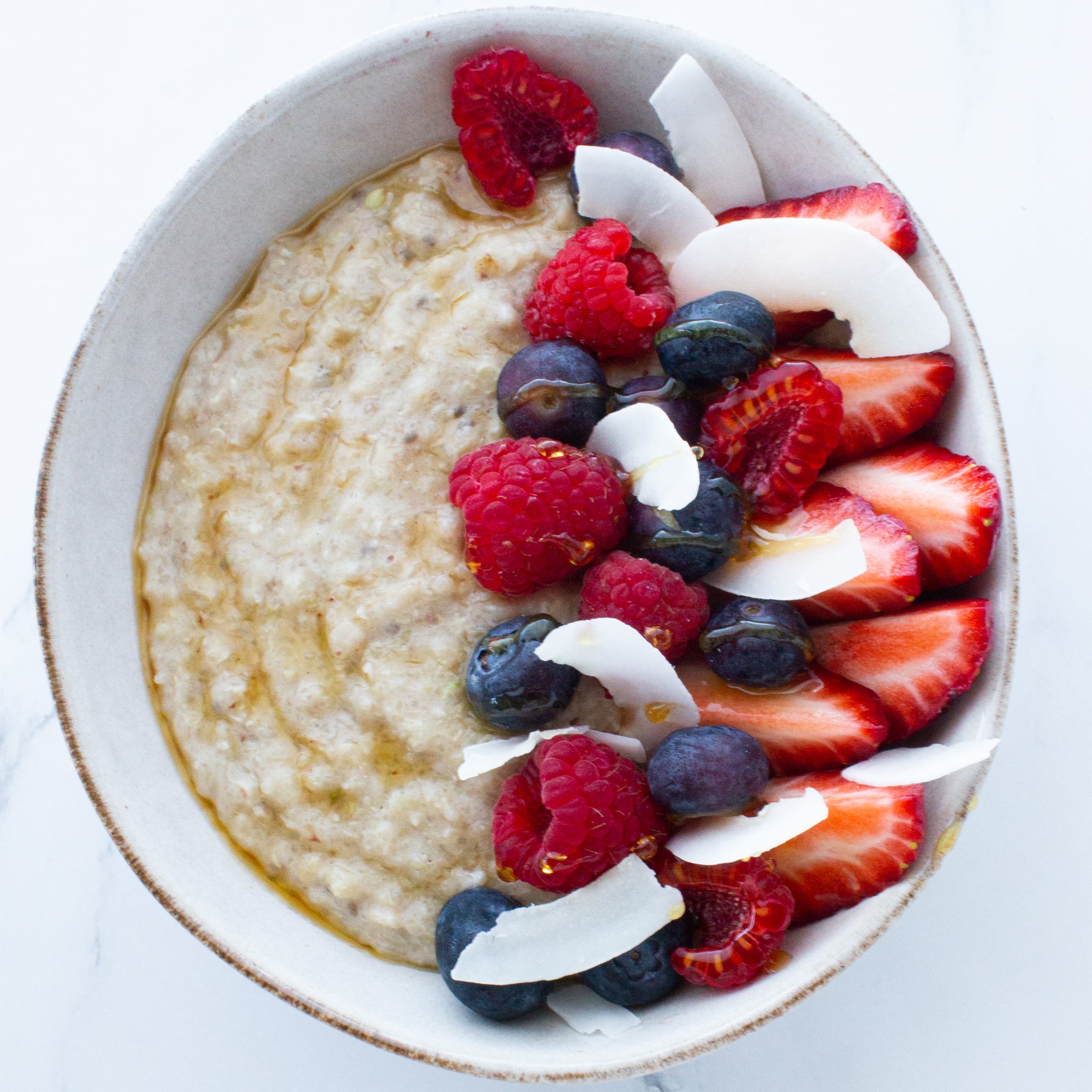
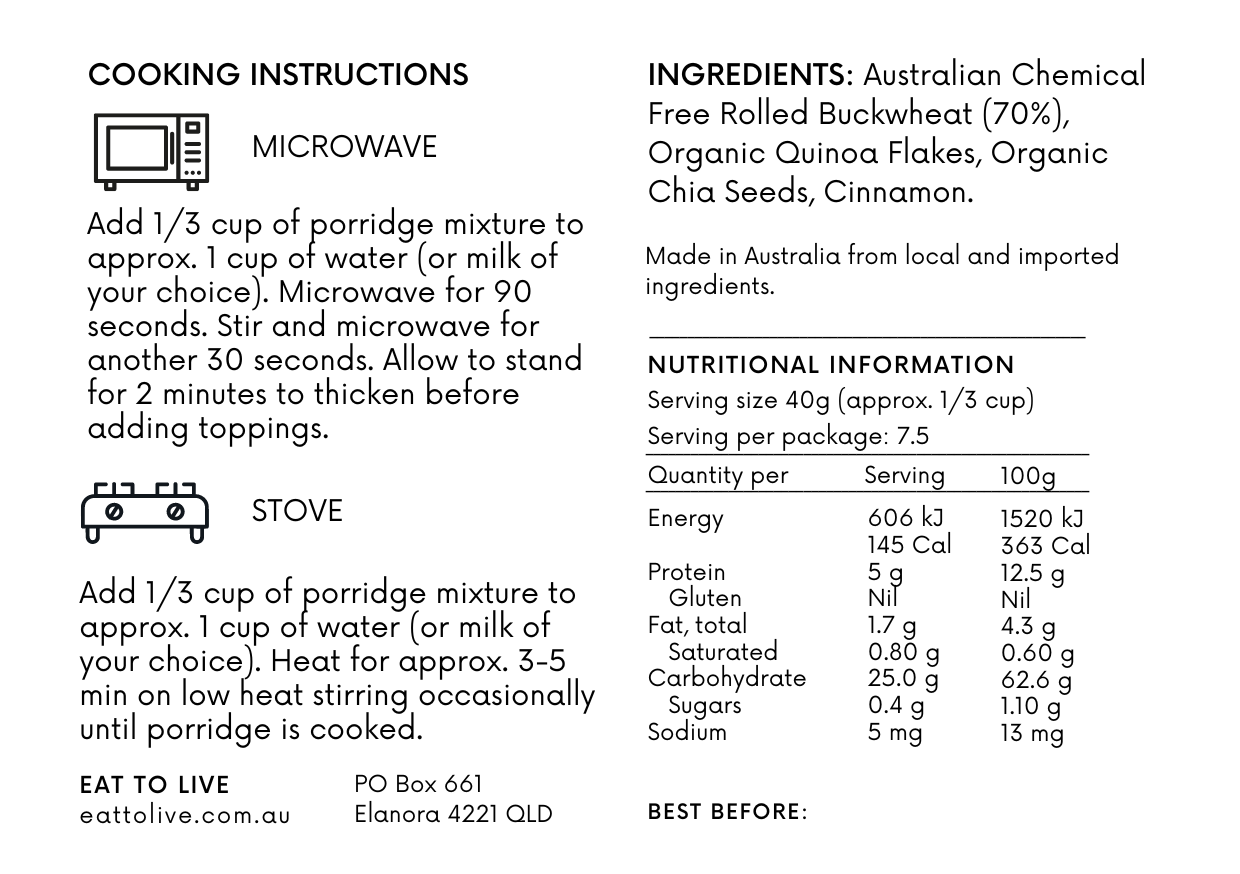
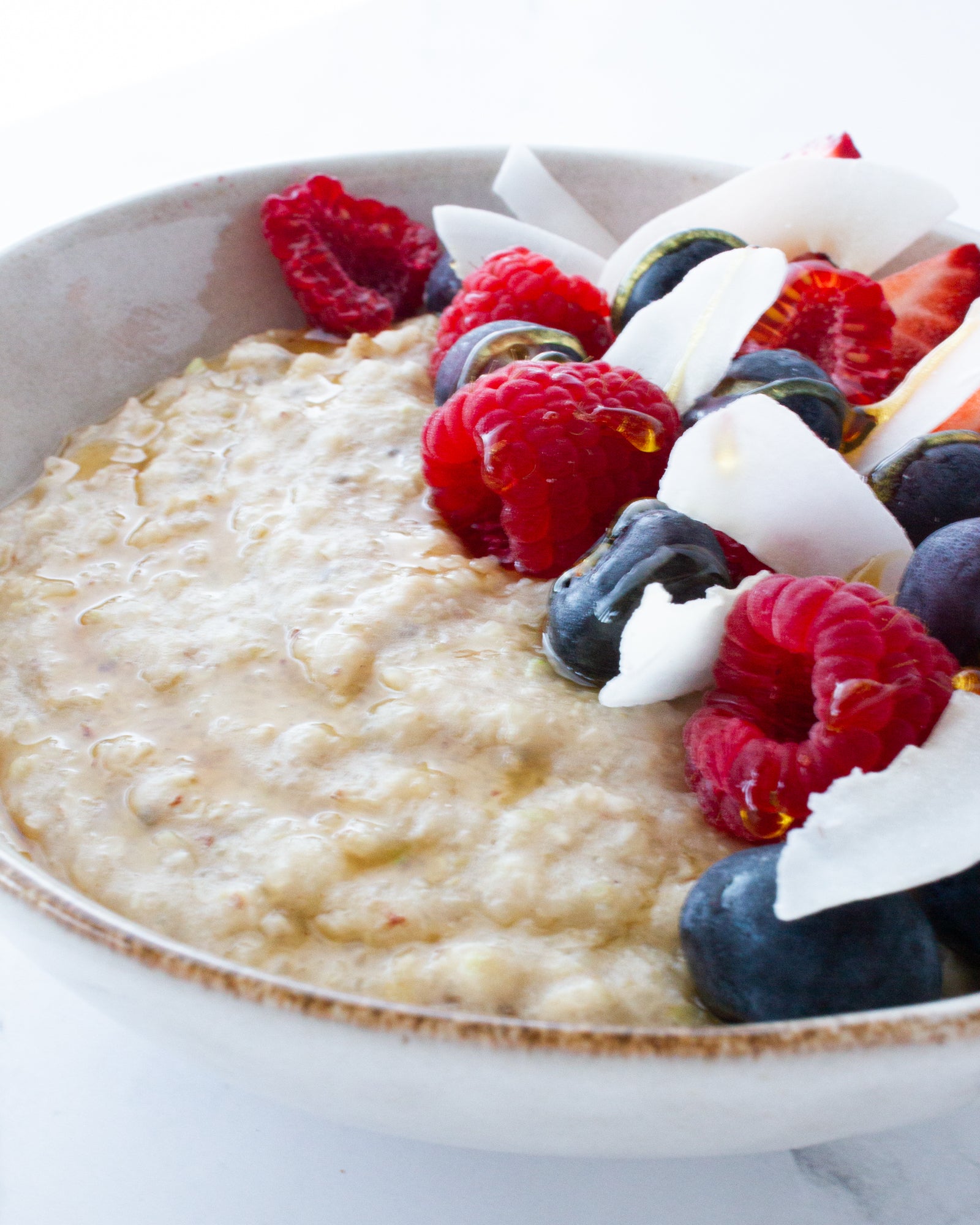
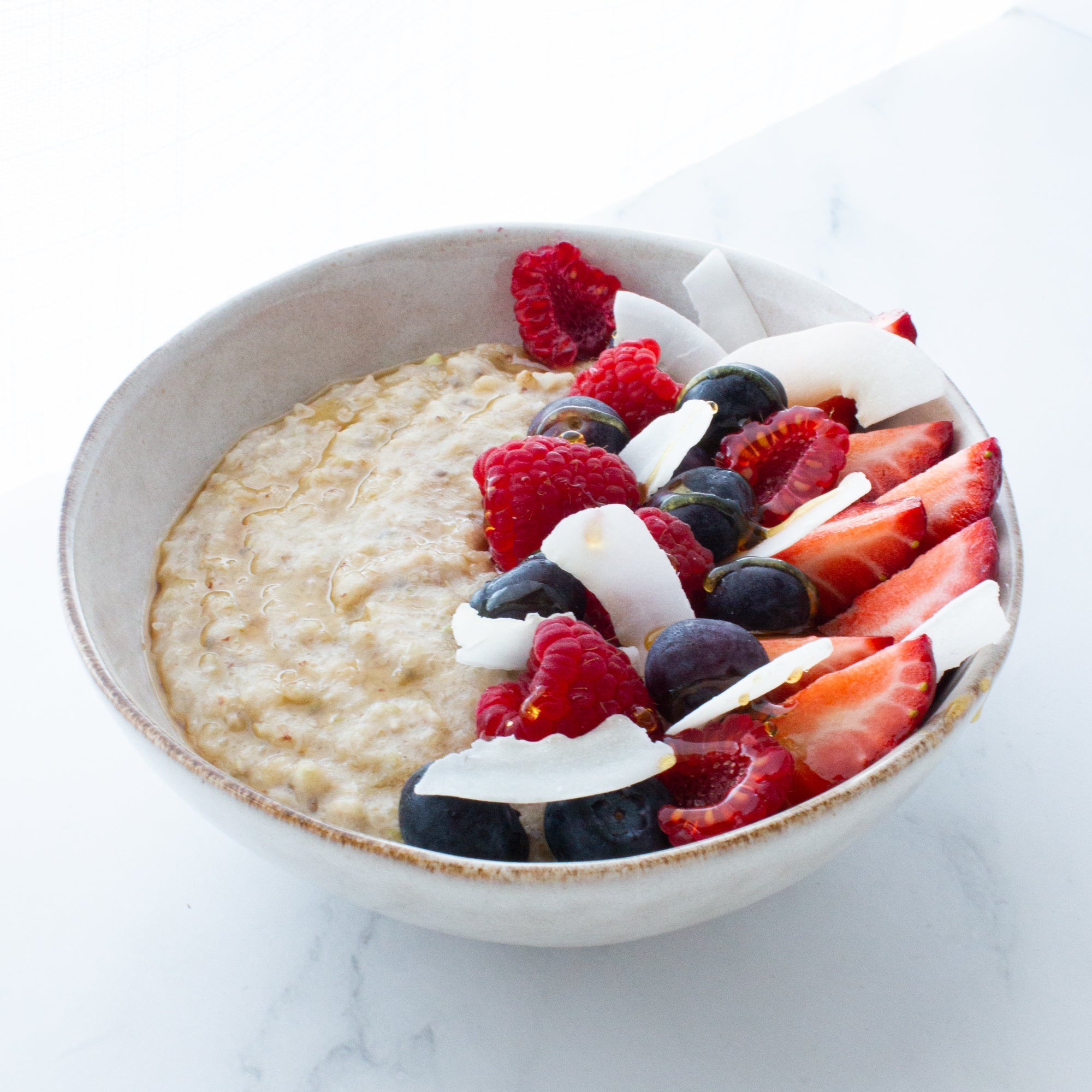
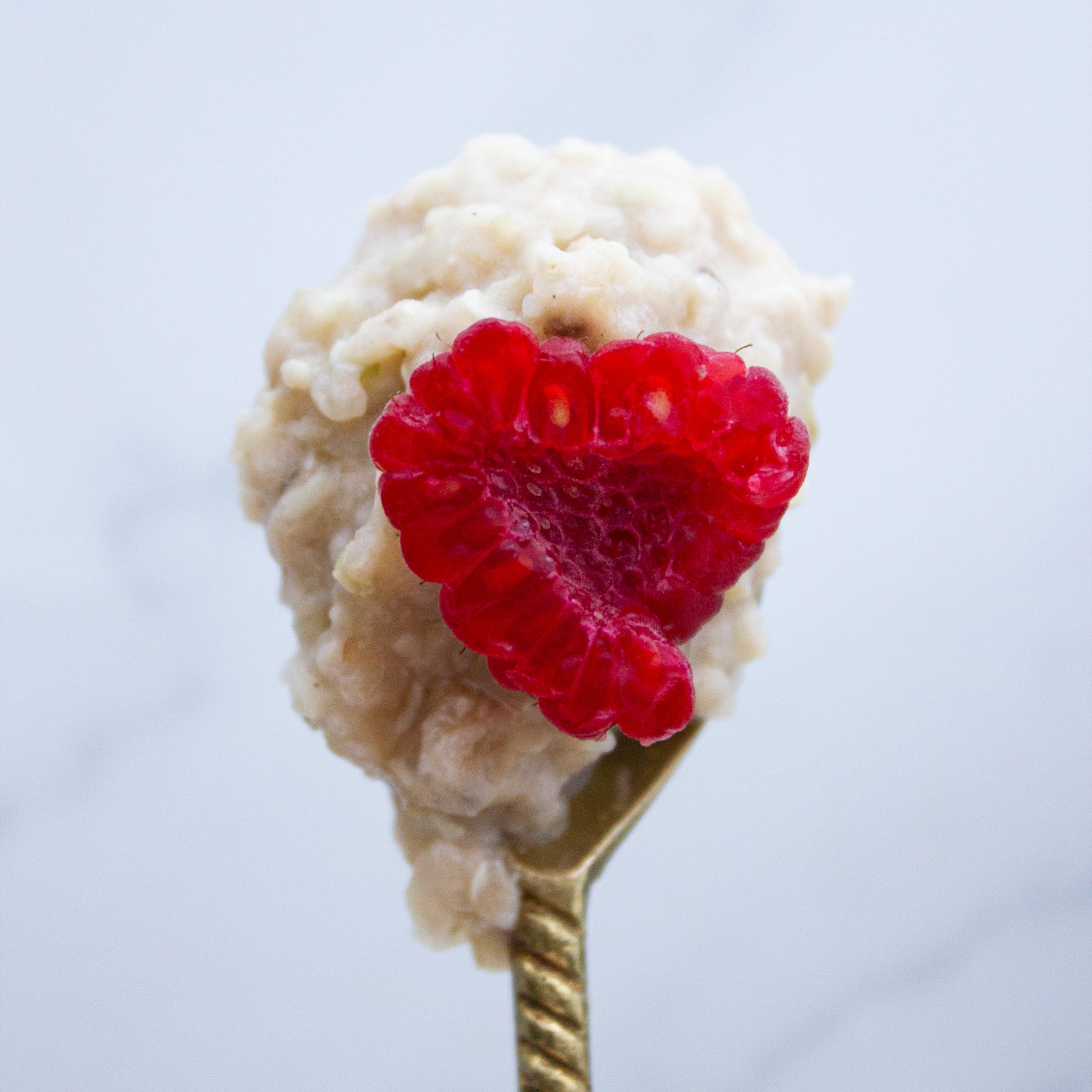
Gluten Free Porridge - Buckwheat, Quinoa & Chia (Grain Free, Sugar Free, Australian Made)
We've been searching everywhere for the perfect Gluten & Grain Free Porridge.
We wanted one without any grains like rice or oats, and it had to be full of nutrients, protein and fibre. It couldn't have added sweeteners and, of course, it had to be irresistibly delicious!
We didn't find any, so we decided to make one! Say hello to our 'Eat To Live Gluten Free Porridge Blend' - a nutrient powerhouse in one bowl!
✔ Gluten & Grain Free
✔ Nut Free
✔ Australian Grown Chemical Free Buckwheat
✔ Plant-Based Goodness
✔ Paleo Friendly
✔ Contains 12.5g of protein per 100g
✔ No added sugar
✔ Source of fibre
✔ Source of iron, magnesium, and potassium
Gluten Free Porridge Ingredients:
Australian Chemical Free Rolled Buckwheat (70%), Quinoa Flakes, Chia Seeds, Cinnamon.
How To Cook :
STOVE (the best way): Add 1/3 cup of porridge mixture to 1 cup of water or milk of your choice. Bring to a boil and simmer on low heat for 3-5 min stirring occasionally until porridge is cooked.
MICROWAVE (the quickest way): Add 1/3 cup of porridge mixture to 1 cup of hot water or milk of your choice. Microwave for 90 seconds. Stir and microwave for another 30 seconds. Allow to stand for 2 minutes to thicken before adding toppings.
Gluten Free Porridge Benefits:
Buckwheat: Buckwheat is not technically a grain, and is rather a nutrient-dense seed with a low glycaemic index. It contains a wide range of antioxidants, as well as anti-inflammatory compounds. It is higher in protein than other whole grains, with 12.6 g per 100g, and also notably high in fibre, with 10g per 100g. Buckwheat is also a great source of the vitamin B complex.
Quinoa: Quinoa is another seed like buckwheat. It contains 12.3 g of protein per 100g and also all the essential amino acids, including lysine – which is vital for tissue growth and development, making it an ideal baby food. Quinoa contains high levels of calcium, iron, potassium, sodium and zinc, as well as copper, magnesium, manganese, phosphorus. Newly published research in Current Developments in Nutrition shows that eating even a small amount of quinoa every day can reduce the risk of cardiovascular disease.
Chia: Chia seeds do have an unusually high content (18%) of omega-3 fatty acids. These are a group of essential fats that are important for heart health and brain function. They're also packed with iron and calcium and are a fantastic source of fibre.
Cinnamon: Cinnamon is a powerful spice that has been used medicinally around the world for thousands of years. It is rich in antioxidants and other beneficial compounds.
Choose options
